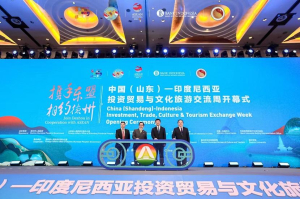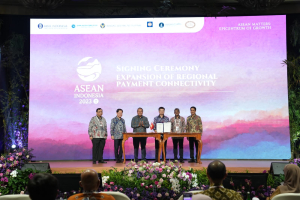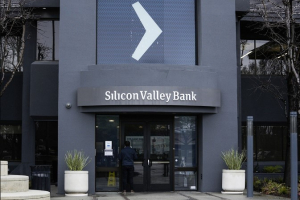Indonesia rapidly moves towards local currency settlement framework (LCSF)
Indonesia is making a significant progress in implementing the Local Currency Settlement Framework (LCSF). The framework is a payment system that allows bilateral trade transactions to be settled in local currencies. According to Bank Indonesia (BI), the implementation of Local Currency Settlement (LCS) has a strategic role in supporting transaction efficiency, local currency market development and rupiah exchange rate stability.
In the first quarter of 2019, total trade transactions through LCS using Thai baht (THB) and Malaysian ringgit (MYR) increased significantly. This reflects the positive progress in bilateral trade transaction settlements with Thailand and Malaysia. This follows a Memorandum of Understanding (MoU) signed by Bank Indonesia, Bank Negara Malaysia and the Bank of Thailand in 2016. The MoU aimed to reduce dependence on the US dollar, increase local currency market development and implement direct trading. These efforts are expected to enhance market efficiency and maintain exchange rate stability.
Japan and Indonesia promote LCSF
In December 2022, PT Bank Negara Indonesia (BNI) Tokyo, in collaboration with BI Tokyo Representative Office, organized a business forum on the utilization of the Japan-Indonesia LCSF. The forum was to bridge the gap between both countries' business needs and increase banking transactions between them. The event was attended by 28 Japan Regional Bank (JRB) officials. It was a joint effort to promote the use of local currencies in trade and investment transactions. This can contribute to trade and investment and strengthen macroeconomic stability.
BNI was selected as the Appointed Cross Currency Dealer (ACCD) by Japan and Indonesia. As the appointed bank, the bank is expected to be a vehicle for strengthening economic relations between the two countries. This will promote direct transactions between the yen and rupiah within the LCSF framework.
According to Takahiro Wakabayashi, the Director for Information, Education and Culture at the Japanese Embassy in Indonesia, BNI will become a bridge connecting the two countries' economies. Through this framework, BNI could continue to promote trade and investment and enhance macroeconomic stability between Japan and Indonesia, cnbcindonesia.com reported on January 9, 2022.
LCSF benefits
ASEAN+3 economies - including Malaysia, Thailand, Indonesia and the Philippines - has implemented the LCSF. It has the potential to increase the use of regional currencies for trade and foreign direct investment among these economies. By settling more bilateral trade and investment in local currencies, these countries can reduce their dependence on the US dollar. This would enhance market efficiency, resulting in cost savings and greater exchange rate stability. Furthermore, a shift towards regional currency use may encourage the development of deep and liquid foreign exchange markets, which would benefit the region's economy as a whole.
To strengthen the LCSF and accelerate the use of regional currencies, ASEAN+3 economies could coordinate their foreign-exchange regulations and rules. This means expanding eligible transactions to include local currency bond investment. Encouraging greater participation of other ASEAN member countries in the settlement framework. A deeper and more liquid foreign exchange market could also be developed, and exchange rate policy could be more coordinated. These measures could make direct exchange of regional currencies cheaper than triangular transactions through the US dollar. Promoting the persistent uptrend of regional currency use in trade and FDI settlement.
Already have an account? Sign In
-
Start reading
Freemium
-
Monthly Subscription
30% OFF$26.03
$37.19/MonthCancel anytime
This offer is open to all new subscribers!
Subscribe now -
Yearly Subscription
33% OFF$228.13
$340.5/YearCancel anytime
This offer is open to all new subscribers!
Subscribe now






